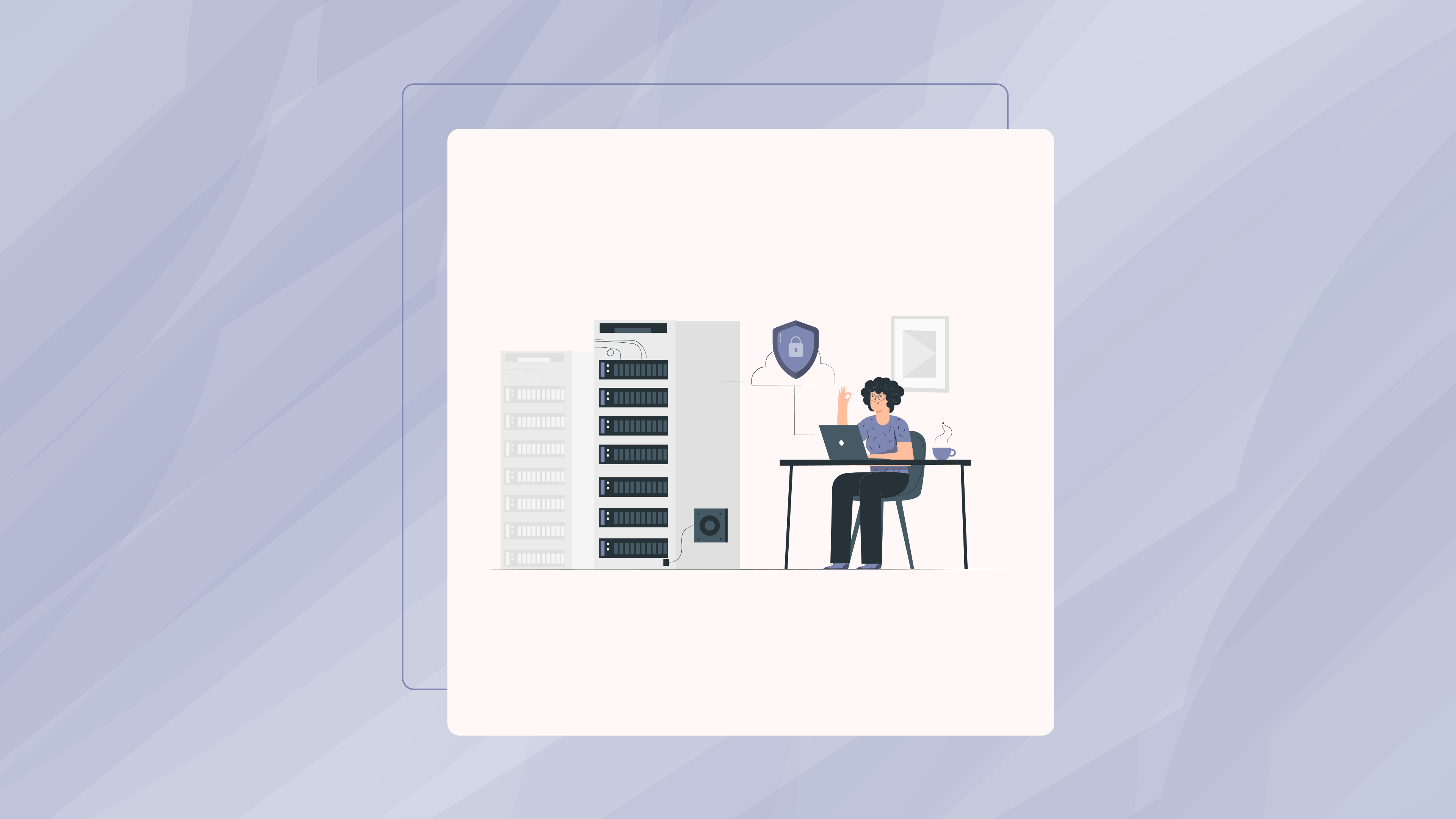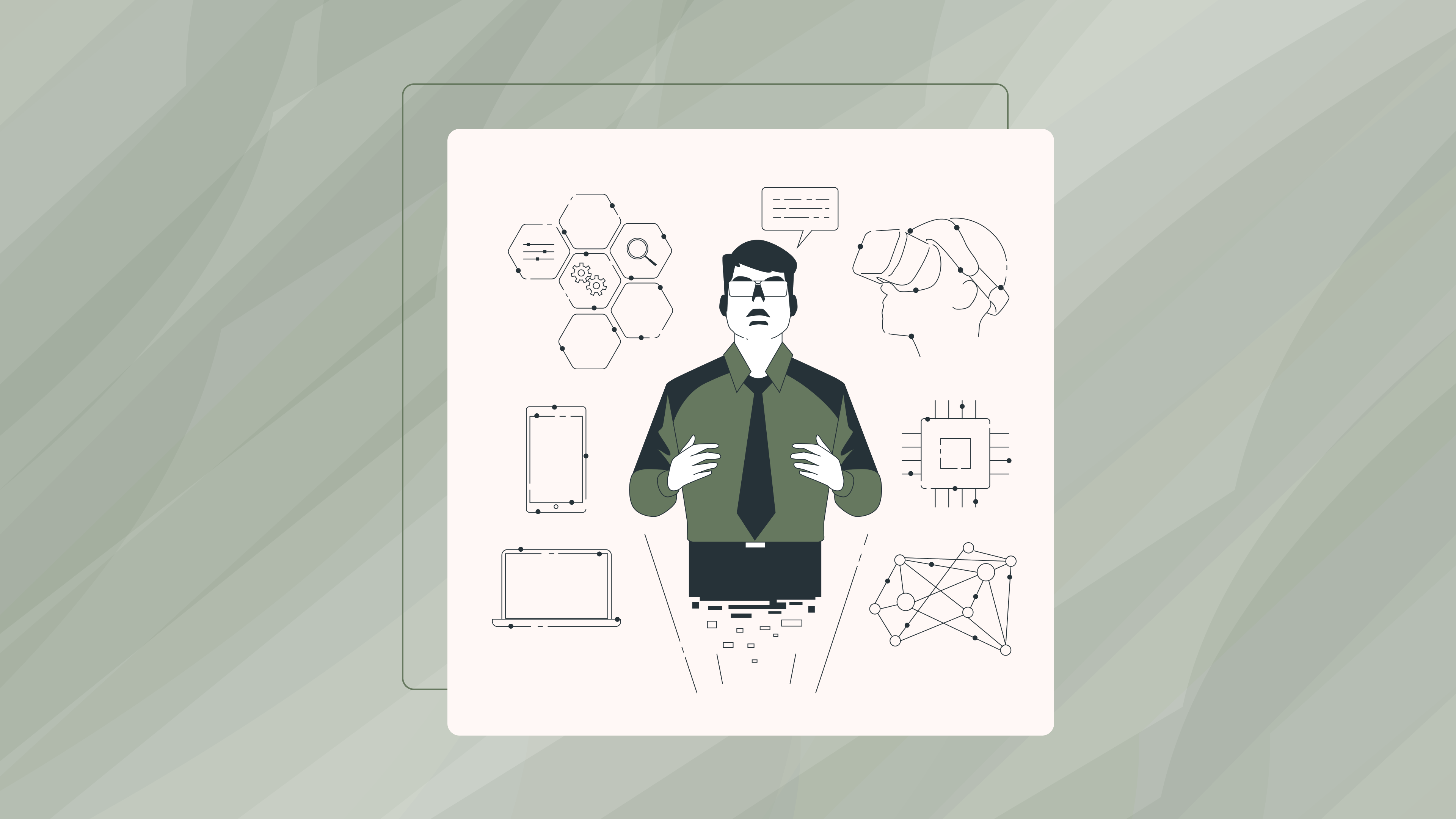Blockchain
How Is Blockchain Dominating The Education Sector?
How Is Blockchain Dominating The Education Sector?
How Is Blockchain Dominating The Education Sector?
How Is Blockchain Dominating The Education Sector?
Jan 18, 2025



Introduction
The education sector is undergoing a digital transformation, and blockchain technology is at the forefront of this revolution. From secure data management to enhancing transparency and efficiency, blockchain is unlocking new possibilities for students, educators, and institutions worldwide.
In this blog, we’ll explore how blockchain is dominating the education sector, its key use cases, and the challenges it faces.
What Is Blockchain?
Blockchain is a decentralized digital ledger that records transactions securely and transparently. Unlike traditional systems, blockchain operates without a central authority, ensuring data immutability, security, and transparency. Its distributed nature makes it ideal for managing sensitive information like academic records, certifications, and student identities.
Why Does the Education Sector Need Blockchain?
The education sector often grapples with inefficiencies like manual record-keeping, lack of transparency, and data fraud. Blockchain addresses these challenges by providing:
Data Security: Prevents tampering with sensitive student records.
Transparency: Tracks and verifies educational achievements.
Efficiency: Automates processes like certificate verification and transcript management.
Global Access: Simplifies cross-border recognition of academic credentials.
By adopting blockchain, institutions can streamline administrative processes, reduce costs, and build trust within the ecosystem.
Top Use Cases of Blockchain in the Education Sector
1. Student Records Management
Blockchain ensures secure, tamper-proof storage of academic records. Schools and universities can use blockchain to create lifelong digital portfolios for students, eliminating the need for paper-based systems.
2. Digital Badges and Micro-Credentials
Blockchain enables institutions to issue verified digital badges and micro-credentials, making it easier for students to showcase skills acquired through short courses, workshops, or certifications.
3. Digital Certificate Verification
Fraudulent diplomas and certificates are a global concern. Blockchain provides a reliable system for verifying the authenticity of academic qualifications, reducing credential fraud.
4. Transcript Management
Managing and sharing student transcripts can be a tedious process. Blockchain simplifies this by allowing students to share their transcripts securely with employers or other institutions in real-time.
5. Smart Contracts for Student Agreements
Smart contracts on blockchain can automate agreements between students and institutions. For example, tuition fee payments or scholarship agreements can be programmed to execute based on predefined conditions.
6. Student Identity Verification
Blockchain-based digital identities ensure that students’ personal information is securely stored and easily verifiable, preventing identity theft or misuse.
7. Digital Education Content Copyright Protection
Educators and content creators can use blockchain to protect the copyright of their digital learning materials, ensuring fair usage and compensation.
8. Credentialing for Lifelong Learning
Blockchain supports the concept of lifelong learning by creating immutable records of all educational achievements, regardless of when or where they were earned.
9. Global Student Awards Recognition
Blockchain simplifies the process of recognizing and verifying global student awards and honors, ensuring transparency and fairness.
10. Teachers’ Performance Tracking System
Institutions can use blockchain to monitor and evaluate teachers’ performance through transparent, tamper-proof records of their achievements and contributions.
Challenges of Blockchain Technology in Education
Despite its potential, blockchain adoption in the education sector faces several challenges:
High Implementation Costs: Establishing blockchain infrastructure requires significant investment, which can be a barrier for smaller institutions.
Technical Complexity: Blockchain technology is still evolving, and many institutions lack the technical expertise to implement it effectively.
Data Privacy Concerns: While blockchain ensures transparency, it must also comply with privacy regulations like GDPR to protect sensitive student information.
Scalability Issues: Managing large-scale academic records on blockchain can be challenging due to current scalability limitations.
Resistance to Change: Educational institutions may resist adopting blockchain due to the disruption it can cause to traditional processes.
Conclusion
Blockchain is revolutionizing the education sector by enhancing transparency, security, and efficiency. From managing student records to protecting digital content, its applications are vast and impactful. However, overcoming challenges like cost, scalability, and technical complexity is crucial for widespread adoption.
As blockchain technology continues to evolve, it holds immense potential to reshape education, empowering students and educators to thrive in a digitally-driven world.
Introduction
The education sector is undergoing a digital transformation, and blockchain technology is at the forefront of this revolution. From secure data management to enhancing transparency and efficiency, blockchain is unlocking new possibilities for students, educators, and institutions worldwide.
In this blog, we’ll explore how blockchain is dominating the education sector, its key use cases, and the challenges it faces.
What Is Blockchain?
Blockchain is a decentralized digital ledger that records transactions securely and transparently. Unlike traditional systems, blockchain operates without a central authority, ensuring data immutability, security, and transparency. Its distributed nature makes it ideal for managing sensitive information like academic records, certifications, and student identities.
Why Does the Education Sector Need Blockchain?
The education sector often grapples with inefficiencies like manual record-keeping, lack of transparency, and data fraud. Blockchain addresses these challenges by providing:
Data Security: Prevents tampering with sensitive student records.
Transparency: Tracks and verifies educational achievements.
Efficiency: Automates processes like certificate verification and transcript management.
Global Access: Simplifies cross-border recognition of academic credentials.
By adopting blockchain, institutions can streamline administrative processes, reduce costs, and build trust within the ecosystem.
Top Use Cases of Blockchain in the Education Sector
1. Student Records Management
Blockchain ensures secure, tamper-proof storage of academic records. Schools and universities can use blockchain to create lifelong digital portfolios for students, eliminating the need for paper-based systems.
2. Digital Badges and Micro-Credentials
Blockchain enables institutions to issue verified digital badges and micro-credentials, making it easier for students to showcase skills acquired through short courses, workshops, or certifications.
3. Digital Certificate Verification
Fraudulent diplomas and certificates are a global concern. Blockchain provides a reliable system for verifying the authenticity of academic qualifications, reducing credential fraud.
4. Transcript Management
Managing and sharing student transcripts can be a tedious process. Blockchain simplifies this by allowing students to share their transcripts securely with employers or other institutions in real-time.
5. Smart Contracts for Student Agreements
Smart contracts on blockchain can automate agreements between students and institutions. For example, tuition fee payments or scholarship agreements can be programmed to execute based on predefined conditions.
6. Student Identity Verification
Blockchain-based digital identities ensure that students’ personal information is securely stored and easily verifiable, preventing identity theft or misuse.
7. Digital Education Content Copyright Protection
Educators and content creators can use blockchain to protect the copyright of their digital learning materials, ensuring fair usage and compensation.
8. Credentialing for Lifelong Learning
Blockchain supports the concept of lifelong learning by creating immutable records of all educational achievements, regardless of when or where they were earned.
9. Global Student Awards Recognition
Blockchain simplifies the process of recognizing and verifying global student awards and honors, ensuring transparency and fairness.
10. Teachers’ Performance Tracking System
Institutions can use blockchain to monitor and evaluate teachers’ performance through transparent, tamper-proof records of their achievements and contributions.
Challenges of Blockchain Technology in Education
Despite its potential, blockchain adoption in the education sector faces several challenges:
High Implementation Costs: Establishing blockchain infrastructure requires significant investment, which can be a barrier for smaller institutions.
Technical Complexity: Blockchain technology is still evolving, and many institutions lack the technical expertise to implement it effectively.
Data Privacy Concerns: While blockchain ensures transparency, it must also comply with privacy regulations like GDPR to protect sensitive student information.
Scalability Issues: Managing large-scale academic records on blockchain can be challenging due to current scalability limitations.
Resistance to Change: Educational institutions may resist adopting blockchain due to the disruption it can cause to traditional processes.
Conclusion
Blockchain is revolutionizing the education sector by enhancing transparency, security, and efficiency. From managing student records to protecting digital content, its applications are vast and impactful. However, overcoming challenges like cost, scalability, and technical complexity is crucial for widespread adoption.
As blockchain technology continues to evolve, it holds immense potential to reshape education, empowering students and educators to thrive in a digitally-driven world.
Introduction
The education sector is undergoing a digital transformation, and blockchain technology is at the forefront of this revolution. From secure data management to enhancing transparency and efficiency, blockchain is unlocking new possibilities for students, educators, and institutions worldwide.
In this blog, we’ll explore how blockchain is dominating the education sector, its key use cases, and the challenges it faces.
What Is Blockchain?
Blockchain is a decentralized digital ledger that records transactions securely and transparently. Unlike traditional systems, blockchain operates without a central authority, ensuring data immutability, security, and transparency. Its distributed nature makes it ideal for managing sensitive information like academic records, certifications, and student identities.
Why Does the Education Sector Need Blockchain?
The education sector often grapples with inefficiencies like manual record-keeping, lack of transparency, and data fraud. Blockchain addresses these challenges by providing:
Data Security: Prevents tampering with sensitive student records.
Transparency: Tracks and verifies educational achievements.
Efficiency: Automates processes like certificate verification and transcript management.
Global Access: Simplifies cross-border recognition of academic credentials.
By adopting blockchain, institutions can streamline administrative processes, reduce costs, and build trust within the ecosystem.
Top Use Cases of Blockchain in the Education Sector
1. Student Records Management
Blockchain ensures secure, tamper-proof storage of academic records. Schools and universities can use blockchain to create lifelong digital portfolios for students, eliminating the need for paper-based systems.
2. Digital Badges and Micro-Credentials
Blockchain enables institutions to issue verified digital badges and micro-credentials, making it easier for students to showcase skills acquired through short courses, workshops, or certifications.
3. Digital Certificate Verification
Fraudulent diplomas and certificates are a global concern. Blockchain provides a reliable system for verifying the authenticity of academic qualifications, reducing credential fraud.
4. Transcript Management
Managing and sharing student transcripts can be a tedious process. Blockchain simplifies this by allowing students to share their transcripts securely with employers or other institutions in real-time.
5. Smart Contracts for Student Agreements
Smart contracts on blockchain can automate agreements between students and institutions. For example, tuition fee payments or scholarship agreements can be programmed to execute based on predefined conditions.
6. Student Identity Verification
Blockchain-based digital identities ensure that students’ personal information is securely stored and easily verifiable, preventing identity theft or misuse.
7. Digital Education Content Copyright Protection
Educators and content creators can use blockchain to protect the copyright of their digital learning materials, ensuring fair usage and compensation.
8. Credentialing for Lifelong Learning
Blockchain supports the concept of lifelong learning by creating immutable records of all educational achievements, regardless of when or where they were earned.
9. Global Student Awards Recognition
Blockchain simplifies the process of recognizing and verifying global student awards and honors, ensuring transparency and fairness.
10. Teachers’ Performance Tracking System
Institutions can use blockchain to monitor and evaluate teachers’ performance through transparent, tamper-proof records of their achievements and contributions.
Challenges of Blockchain Technology in Education
Despite its potential, blockchain adoption in the education sector faces several challenges:
High Implementation Costs: Establishing blockchain infrastructure requires significant investment, which can be a barrier for smaller institutions.
Technical Complexity: Blockchain technology is still evolving, and many institutions lack the technical expertise to implement it effectively.
Data Privacy Concerns: While blockchain ensures transparency, it must also comply with privacy regulations like GDPR to protect sensitive student information.
Scalability Issues: Managing large-scale academic records on blockchain can be challenging due to current scalability limitations.
Resistance to Change: Educational institutions may resist adopting blockchain due to the disruption it can cause to traditional processes.
Conclusion
Blockchain is revolutionizing the education sector by enhancing transparency, security, and efficiency. From managing student records to protecting digital content, its applications are vast and impactful. However, overcoming challenges like cost, scalability, and technical complexity is crucial for widespread adoption.
As blockchain technology continues to evolve, it holds immense potential to reshape education, empowering students and educators to thrive in a digitally-driven world.
Schedule your Free Demo
Schedule your Free Demo
Empower Your Organization’s Growth with the Future of Blockchain Technology
Empower Your Organization’s Growth with the Future of Blockchain Technology
Book a Demo



